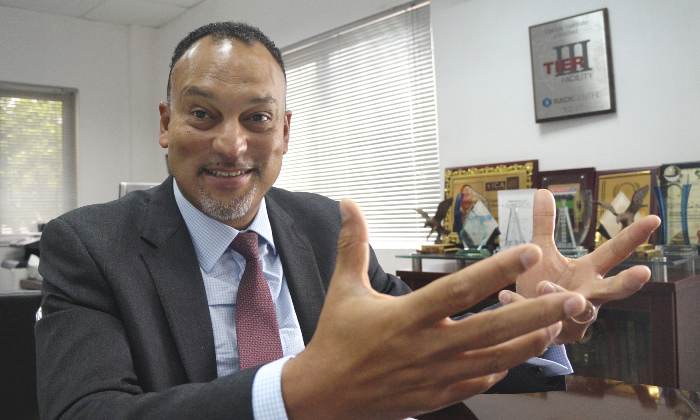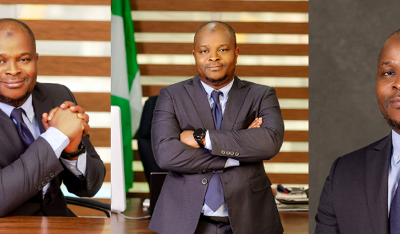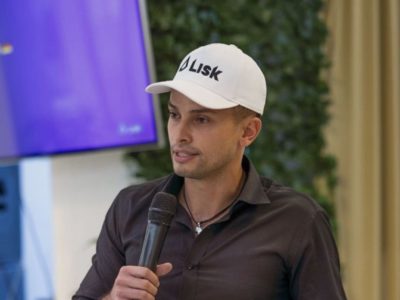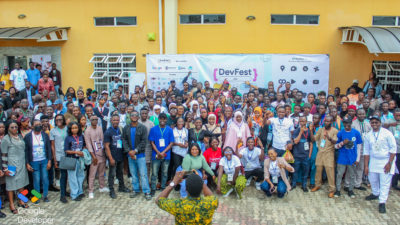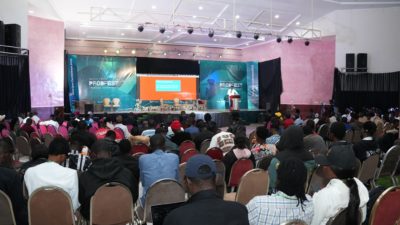Ayotunde Coker, Managing Director of Rack Centre, the only Tier III-constructed facility certified data centre in Nigeria, shares with IT Edge News, Oluwatobi Opusunju and Chinedu James, the challenges and opportunities in building and promoting a data centre in a market that is young and perpetually in transition. ‘’The terrain is tough’’, says Coker. ‘’But the difficulties are in themselves opportunities to create a new frontier of service excellence and broaden access to a market where innovation and funding remain key to being sustainable.’’
Rack Centre is the leading data centre in Nigeria. How would you describe the growth since launching service about five years ago? How exactly will you describe Rack Centre – just a data centre?
In 2014 Rack Centre was the first data centre in West Africa to be certified as a Tier III by the Uptime Institute, it was also the first and currently, the only carrier neutral collocation provider in Africa to be Constructed Facility certified also by the Uptime Institute. So, Rack Centre is indisputably the leading data centre provider in Africa and we intend to continue to set the pace. Rack Centre is carrier neutral, and that is significantly so because it neither has any affiliation with any carrier nor is it a carrier itself. But we do have carriers that provide data connectivity, all major mobile network operators are all here, as well as major Internet Service Providers. We have 27 of these companies that are connected to Rack Centre, so creating a Tier III level point of comprehensive interconnect in the region. Every single country on the Atlantic coast of Africa is directly connected to Rack Centre by fibre.
We have a great customer base, local and international, leading players and it is notable that since October 2013, we have operated without a second of downtime, a feat we worked hard to achieve and are proud of.
We are doubling our capacity to take on board new customers and we expect that to be concluded by the end of this year. We are proud of the customers that are hosted in Rack Centre. We are customer focused, that is one of the reasons we engage regularly in customer satisfaction reviews. From the surveys, we discover that we even exceeded our customers’ expectations across all sectors of the customers’ base. Despite exceeding those expectations, we still continue to look into what we can do more concerning the customers’ needs and aspirations.
We are really encouraged at how Rack Centre has emerged in the data space as a leading brand in Africa.We are working hardto scale our capacity. For example, we could build up to 3000 rack capacity, 8.5 megawatts of just the IT power andgenerated site power capacity of about 15 megawatts. The largest single site capability we know of in West Africa.
We plan to expand to key locations in the country like Abuja and also other parts of West Africa.
What would you really say are the challenges facing data centres in Nigeria? Why is adoption rate slow?
There are a variety of challenges, but challenges can also be turned into opportunities. Power for instance is a challenge, but we have been able to handle that effectively, we are like a power generating company, and in a bid to increase our power supply and further increase efficiency, we are working with Ikeja Electric. Our quality here at Rack Centre is as good as the quality that you can find anywhere else in the world, because we are certified like any other top data Centre in the world by the Uptime Institute, the global authority on data centre certification. So local Nigerian companies no longer need to build their own data centres, and neither do they need to go abroad to host anymore. That hosting capacity is here in Rack Centre and we bring added benefits to those companies that host here, of knowing where their data is, there is lower latency and I can vouch that the interconnectivity is top scale, since there is a choice of interconnectivity partners or ISPs. We are making great progress, Rack Centre is increasingly becoming more of a household brand as prospective clients and even the general public not only knows the brand but also what it offers.
Another thing is unlocking what we call the addressable market, as the market in Nigeria should be significant. But nevertheless, if you look at data centre capacity, research shows that just South Africa has 60% of the whole of Africa’s installed capacity. And when you look at the dynamics of Nigeria’s GDP and population, we have about 20 million SMEs in Nigeria there has to be a significant market opportunity. With the addition of micro SMEs that total is about 35 million. That’s a significant number but nevertheless we are still under-provisioned in terms of data centre capacity here in Nigeria. Companies no longer need to host their data abroad and it is time to move their data to where there is better performance and high quality.
We have set up cloud services, underpinned by our brand Cloud on Ground. Cloud services are very important, because, they increase the access to computing services for corporates and SMEs and payment for services can be on a pay as you go basis. We have partners that we work with in that cloud ecosystem and we continue to extend the number of such partners, and we are looking at the whole gamut including cloud security, infrastructure and platform as services. It is a whole range of services that we are bringing in, hosted in Nigeria. So, there is no need to go outside the shores of Nigeria for these services as they are right here in Rack Centre. Of course, there are lots more that we need to do, but as in other parts of the world, we keep building the ecosystems and we keep innovating.
“The local content is absolutely essential. National Information Technology Development agency, NITDA is doing some great work in bringing that awareness, but the key is the execution.”
The key challenge is getting through the message to unlock that addressable market which is significant and there is no reason why we are not able to deliver these services to the whole of West and Central Africa.
Human capacity can also be a challenge but it is a challenge in any business where high class expertise is needed. At Rack Centre, we are world class at what we do, we invest in our people, we have excellent human capacity on board and Rack Centre both at the leadership level and the rank and file are African. Of course, there are always challenges, but we have turned them into positives. There are other challenges concerning access to efficient capital. The cost of capital is significantly high compared to competitors elsewhere in the world such as the US, Europe where they have access to very low capital of about 2% – 3% cost of capital over 20 years. If we get 7% or 8% we will be doing pretty well over 10 years. We see that as a challenge and the only way we can work around it is to be more efficient, and we are definitely more efficient in the way we deploy capital and equipment. We are working very hard to be more efficient in all areas despite the challenges. The value to the economy, if we have a vibrant data centre ecosystem, is significant not just for Rack Centre but industry as a whole. The upside on the addressable market is significant, but in unlocking it, we do not want to compromise. We want to deliver world class quality and capability not just to Nigeria but to the entire Sub Sahara region.
Rack Centre prides itself as achieving an impressive record of 100% uptime since launching service in 2013. How have you been able to weather the storm to achieve this?
We focus very heavily on enterprise risk management. We have an innovation cycle of 3-6 months in the industry we are in. Power requires core engineering, so we make sure that we innovate in the delivery of that core engineering through the entire value chain. The other thing is that because we are truly Tier III in certified construction, certified by the most respected body in the world. We absolutely put in everything day to day in making sure that we continue to sustain that 100% uptime.
Data centres should help to drive digital transformation in Nigeria considering the huge number of SMEs put at over 30 million. But there appears to be a gap in addressing this green market. Why is it so?
The demand for data centre is sure to go up with the increasing number of SMEs, it’s a systemic effect. If the 30million MSMEs cannot have access to broadband services on the go, then they cannot have access to cloud services especially on the pay as you go basis. Some of the building blocks have to be in place. It is a cause and effect chain reaction. We now have anchored here, a data centre capability that we are constantly expanding, and it creates room for hosting for cloud providers, corporates. It reduces the cost base, releases money for other investments. Companies should outsource their data centre requirements as building one directly takes away capital from the front end of the business. Data centres need to be hosted in a reliable place with access to broadband, because once data centre is down, the business is down, broadband providers will go down and even the telcos and fibre will all go down.
I think there is a shift now, that the demand for data is such that it is more efficient for telcos to work with people like Rack Centre than build expansion to their own data centres because it is taking away capital from what they can invest in; capital that they will require for the front end of delivering broadband data services to their customers. We will see data centre capacity and footprint demand go up significantly in Nigeria. We just need to get things right as quickly as possible.
Do you get patronage from government? In terms of local content promotion, do you think government is doing enough?
The local content is absolutely essential. National Information Technology Development agency, NITDA is doing some great work in bringing that awareness, but the key is the execution. A lot of government data is held outside the country and we need to put that into perspective. Yes, we did not have the capability in Nigeria five years ago. But over the last four years, we have had Rack Centre and we can deliver that capacity and capability to government. So, I think it is time for government to bring its data back to where it should be. And I think it is government’s own priority to decide that it will host its data in-country.
Now, for private companies, we should make sure that we implement or enforce laws because we do have the rules around sovereign data. But we should make sure that anything that we enforce is in line with global best practices so that we do not undermine certain things like ease of doing business rankings. It is very important for us not to spook investors by doing something that is not in line with global best practices. But nevertheless, if we have it then we should do it. So, I think there are a lot of opportunities for government to now continue to patronise local data centres. We want to work in partnership with the government bodies such as Galaxy Backbone that need to deliver the services. Because just as I said with the private sector, why would you put capital in building a data centre when we can deliver the capacity here?
“We have set up cloud services, underpinned by our brand Cloud on Ground. Cloud services are very important, because, they increase the access to computing services for corporates and SMEs and payment for services can be on a pay as you go basis.”
Just as we say to companies, now we have the quality to outsource and colocate their data in a safe and reliable environment. We have ten levels of physical security. How many banks or agencies can put ten levels of physical security in place? And we have an expertise focused on delivering data centre security. So, there is now no justification for anybody to host data abroad whether private sector or government, because it is available on demand here. We can do that, we are modular, we build our capacity on demand and we deliver high quality capacity quicker than any other data centre company can. The capital that a company will put into building a substandard data centre can be channeled into the core value generation elsewhere. That is why we say- now that we have Rack Centre, government and businesses should bring their data back to where it should be. We connect Nigeria and Africa, ready-made.
Is the existence of an entity like Galaxy Backbone detrimental to your ability to penetrate the public sector?
Galaxy Backbone is an agency that delivers services to government and we will be very happy to partner with them. We are looking at how we can do that to enable the delivery of services to government. We can work in partnership because the importance is in the service that is delivered at the end of the day and not which data centre delivers it. No one gives you prizes for building a data centre, what prizes are awarded for is delivering efficient services at the right cost to the market you serve which is what we do here at Rack Centre.
A lot of Nigerian businesses are still apprehensive about hosting their data in Nigeria due to perceived in-country challenges such as frequent down time, poor service culture, and the overall poor business climate in Nigeria. How is Rack Centre addressing these challenges?
We have a track record of 100% uptime and our customer service is always beyond expectation. There are written testimonies from some of the biggest companies in Nigeria attesting to the high quality of customer service that they have received from Rack Centre. In terms of quality, we have a Tier III Constructed Facility Certified carrier neutral data centre which is the only one in Africa. In terms of recognition, we are the only one in Africa that has won global awards and Pan African awards. There is an interesting thing about the data centre business. If a new data centre is set up,it needs time to build a cold room structure, a credible leadership team that will be able to deliver the trust in operations; has to build a track records in reliability, and name recognition, these things take time and that is what we have spent a lot of efforts doing as a company and as a brand. If a brand survey was done in the country, it will be interesting to see where Rack Centre sits in terms of brand trust and recognition, I am sure that we will be sitting at the top. Last year, we were one of the 25 most innovative companies in the Business Day Survey of Companies in Nigeria and we won the most innovative data centre. We won the Infrastructure Company of the year in the data centre category at the Beacon of ICT awards for the fourth year running, and Infrastructure Company of the Year in all categories for the last three years.
My view is that what we deliver is as good as anywhere else in the world,we create the awareness and it is incumbent on Nigerian companies and West African companies to patronise what is ours. We hire people here as we build more capacity and as our patronage grows, we can do more. The employment and GDP growth we are creating are significant. I did a presentation on the global statistics at the Beacon of ICT awards a few years ago; it shows that for every million dollars you spend in infrastructure, there is a ten to hundred-fold GDP impact on the community you are hosted in. So, the GDP impact we have for every million we spend is 10 to 100 million. On an operational basis, the more we scale out, the more we recruit local people. But you know the key thing about this; the Nigerians we recruit are top tier in the world in terms of the value and the quality of people. We also have to make sure that we adequately remunerate our people and create a working environment that is as good as anywhere elsewhere in the world because we are dealing with global results. So, as we create a successful Rack Centre, the systemic impact that we have is significant based on those parameters I have mentioned. Rack Centre has won numerous global awards. Customers can host in Rack Centre knowing they are with one of the world best.
How have you been able to ensure data hosted on your servers are secured from external hackers? Can you tell us about your security framework and ISO certifications?
We were pleased to have gone through our ISO certifications a few years ago without one single non-conformity and the certifying agency said this was quite a remarkable thing which we are proud of and we have continued to maintain that ISO information security standards. Our certifications are up to date and continuously without any control infringements. We continue to enhance this with respect to other ISO certifications, we operate to the ISO operational standards. We have major banks at Rack Centre and we are Payment Card Industry Data Security Standard (PCI DSS) compliant. Actually, we are a financial services payment ecosystem exchange hub in the country and in the region to companies and payment providers that are PCI DSS certified themselves.
“We have a track record of 100% uptime and our customer service is always beyond expectation. There are written testimonies from some of the biggest companies in Nigeria attesting to the high quality of customer service that they have received from Rack Centre.”
With respect to security, there are two sides. How we operate as a business is one which is the ISO standards and there is the physical security to ensure that the environment is physically safe. We have ten levels of physical security. In fact, the security experienced at Rack Centre when passing through the initial entrance, some say are very stringent and very thorough, but that is actually nothing compared to the security that we have in the core of the facility. So, there are ten levels of security in our physical security value chain and we invest in having that physical security. It is a key aspect of the data centre sphere that we set up. Then we have the software security. A software security of installed capacity is down to the customers that we have at Rack Centre because they have to make sure that their firewalls are solid. But nevertheless, in our cloud services, we have cloud software security and firewall services distributed to our customers that is available for consumption on a pay-as-you-go basis. So, we have those key aspects of security. Our own security as a business, our certifications, software security as a service and physical security; we provide world class capabilities in these areas.
As a business, information security management is very important and we have regular reviews to make sure that in the education of our people around software management and control, there is a high level of preparedness and we update regularly. It is a continuous process and we make sure that always,we have the latest protections. Software security is not just about software, it is also about people. People need to be educated on the kind of behaviours they need to exhibit while online as employees of the company so that they do not become a point of compromise to information security. For us at Rack Centre, security it is a way of life.
Presently, our ISO certification is 27001 and we are operating on the ISO 20000 right now and we are converting that to an actual physical certification in the next few months.
What is unique about your cloud solutions and what other services should the market be told come uniquely from Rack Centre?
As I mentioned we have what we call‘Cloud on Ground’ at Rack Centre and its nature is to build a cloud ecosystem, some of which we do in delivering infrastructure as a service on ground and a lot of which is done through partners. At Rack Centre we host the Internet Exchange Point of Nigeria and that is essential because we are the only one that is Tier III Constructed Facility Certified and the most interconnected. We also host the regional Internet Exchange Point for West Africa and such partnership with other exchange points in West Africa enable us to domicile data here. Secondly, we now host websites here with the same quality of infrastructure that you will get elsewhere, and Rack Centre’s own website is actually hosted in Rack Centre here, and has a better performance compared to when hosted elsewhere. Over here in Rack Centre, you get the capacity you need on demand, the workload you need, the memory you need, the interconnectivity you need, all of those things are just here. And as your business grow, you pay as you go; based on cloud services here. As we move over the next 6-12 months, you will see us come up with some key enhancements we have generally on cloud because increasingly given our population and the growth that we conceive, other global cloud footprints and content distribution networks will start to gravitate to Rack Centre.
There is a term called the edge data centre and as the world global adoption on cloud has grown where you find the global players, they will host from what is called hyperscale data centres. Now there is a lot more demand in terms of volume of data which causes a lot more latency and we are positioned as the de facto edge data centre to global players. We are highly inter-connected. Being certified by the uptime institute is a global thing. Everybody knows that it is a global standard so it is delivered here. It lets the world know that this is a high-quality place to host data. I am very excited about the kind of thing that we are doing and the journey we are on into the future. Every single country on the Atlantic coast is connected to Lagos with Rack Centre because all the undersea cables are directly connected to Rack Centre. Some of them are not through one provider because some of them are with consortium, for instance you can access the West Africa Cable System’s (WACS) undersea cable through five different providers in Rack Centre. So, it’s not just about the one undersea cable, it is five different routes into the same one.And in all the five undersea cables, you can probably access them through about twelve different providers. So, our connectivity capability is very comprehensive and that is why we say we are the most connected Tier III data centre in Africa, it’s not a matter of opinion, it is a matter of fact.
Is broadband connectivity a mirage in Nigeria? How can we improve our broadband stakes as a country?
I can say that the broadband target of 30% by the end of this year can happen, but a variety of things need to be put in place. The government needs to tackle some inhibitors. For instance, multiple taxation, right of way issues, provision of an enabling environment for the private sector and need to remove those structural policies that affect infracos. There should be tax incentives to deliver broadband connectivity by infracos. When these are done, there will be an increased penetration of broadband. You will find out that the core of broadband penetration will be very high in places like Lagos and Abuja because these are places of economic concentration. What we need to do then is to drive the right encouragements that drive the right behaviours to get broadband acceptance into other areas that are not core in terms of market size. You can have an average broadband penetration of 30% but you can have 70 or 80% penetration in places like Lagos. Lagos is the 5th economy in the GDP size in Africa and that is significant in itself. If we have a high penetration rate, it is bound to benefit the economy just as Lagos that contributes about 25% to Nigeria’s GDP. It is this interconnection and network that will build the momentum that will now enable us to drive broadband penetration elsewhere in the country. So, I think the 30% should happen as there are other systemic impacts of broadband penetration. Research has shown that in emerging economies, 10% broadband penetration can drive GDP by about 1.8%. So, achieving every 10% penetration impact on GDP, to grow our GDP to about 6 or 7%, is a national thing. This will get us more access to data, education, more efficient health system, more efficient schools and that will give Nigeria a systemic uplift. So, let us get the core of achieving the 30% impact on the GDP and then drive it forward as a national priority.
But it does not rest solely on building broadband and building fibre because fibre is one component of broadband. There are new technologies now that are changing the landscape for delivery of broadband. 4G LTE has now become a reality way beyond what we would have expected about four years ago. Now you can actually get delivery through the towers to make sure that you are able to deliver 4G capability. Even 3.5G capability is good enough broadband to reach places where the delivery of fibre could be expensive. The landscape of delivering broadband and the possibilities have changed. So, you now have the telcos playing a key role, the carrier companies laying fibre, you also have the tower companies also playing a role in the new ecosystem that drives broadband penetration. Mobility will define the future and broadband as the mobility that defines the future is a key thing in the transformation of the economy. For us at Rack Centre what that means is that as the demand goes up, you will see footprints and people who need data hosting will go up in the corporates. But also, if the SMEs which stand at about 20 million cannot get connectivity then there is no point because they cannot consume cloud services. But if they are able to connect which of course should be the goal, then they will be consuming cloud services just like voice services because of increased data and that is the future. That is where we will now get that uplift in the consumption of cloud services. When we get that ecosystem right, it will transform the Nigerian economy and that is when we will get the real GDP up-shoot.
Most companies still have their data hosted offshore. What does this portend for companies like yours and Nigeria as a country?
There is a great need to create the awareness about this which will make people understand the value proposition. Of course, there are local content and sovereign data laws that are ongoing. But regardless of those laws; the first thing that we have to do is to locally provide the capability that is as good as anywhere else in the world in terms of the facilities and in terms of the customer service. Therefore, the next thing is to have something at your own door step to bring your data to and that is what we offer. I am not an advocate of saying, if we are not as good as elsewhere in the world, we should just legislate and say just host here. Actually, it is going to encourage mediocrity and we should not do that;we should just focus on being as good as anywhere else.Let people be aware of that and get them to patronise the services we offer. I am happy to stand up to the quality and challenge of competition, because it forces us to imbibe high quality and world class services.
If we have the services here and you decide to go outside, it is a free choice. But if we meet and exceed those centres outside, then it is a wise choice to come to Rack Centre and that is why we make sure that we are as good as anywhere else in the world.
How can government create an enabling environment for data centres?
Actually,the Presidential Enabling Business Environment Council (PEBEC) has done a great job and once you make a declaration such as that, it has a way of driving the right behaviours. Technology is a key aspect of enabling business. PEBEC has done a great job and its actions have enabled Nigeria to go up about 24 places on the World Bank ranking on the ease of doing business and I think it is Nigeria’s place to be in the top 100. If we continue to make sure that things are right, then it will trickle down to what we do. From a country’s point of view, we need to make sure that we do the right things that reduce country risks which reduce the cost of capital. Reduced cost of capital makes it much more efficient for us to grow as a company and be much more competitive from the cost point of view.
Some of the technology environments need to be considered with respect to not just pioneer status but recognising the impact they make on the economy. We can achieve more when the good micro policies are put in place. However, the importance of technology in what we are trying to achieve in the ease of doing business is essential. There are two rankings globally for technology right now: there is International Telecoms Union (ITU) ranking and we are about 143.With the World Economic Forum (WEF), we are about 125 out of 137 economies in its Global Competitiveness Index (GCI) on ease of doing business. To achieve these scores, these bodies look at e-governance, aspects of broadband availability, aspects of competencies and people, etc. We are so low in these areas. If you look at the countries that are at the top of the technology rankings, mostly there is a high correlation with the ones that are at the top of ease of doing business. So, if we do not take our technology mission seriously, we will never get to the climax of ease of doing business. We will reach a brick wall. We have to make sure that we get things around broadband penetration, capacity building in technology with a 10-15-year focused target. Look at South Korea and some other economies that have made transformations in the last 20 years; we can tow the same path. We have to make sure that we make concerted efforts to raise Nigeria’s ranking in the information technology capability index so that we will be showing up at about 50/60 level and then other things will follow. We need to set a national target which will drive the right behaviours such as putting in place the right infrastructure, taking away multiple taxation, take away Right of Way (RoW) issues, setting some goals with respect to e-government. In fact, let us start by hosting our data at home. If we systemically target these things to go up the rankings of technology, it will have an impact on the overall ease of doing business. The agencies like the Nigeria Communications Commission (NCC), the National Information Development Agency (NITDA), Ministry of Finance need to come together to target these things.We need policies to enable us to bring our technology in with minimum excise duty so we can build world class ecosystems here.
How do you see Rack Centre’s future in the next few years?
We are looking to create an amazing comprehensive ‘Cloud on Ground’ ecosystem. We are putting a lot of efforts on that and we continue to be the most connected place and inter connecting place as far as data is concerned because we are truly carrier neutral. We intend to build our scale over here to about twenty-fold more than our current scale. We will not only build scale in Nigeria but we will have footprints elsewhere in Africa for us to be the data centre major that Nigeria and all of West Africa will be proud of. We will be expanding to other locations in Nigeria and West Africa.

